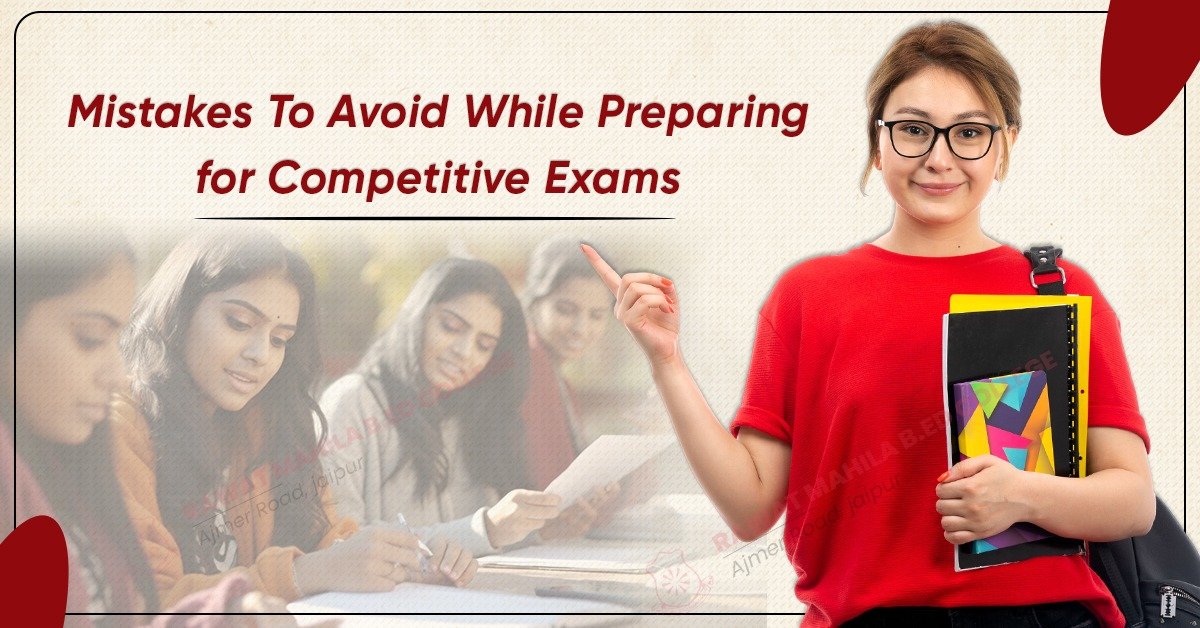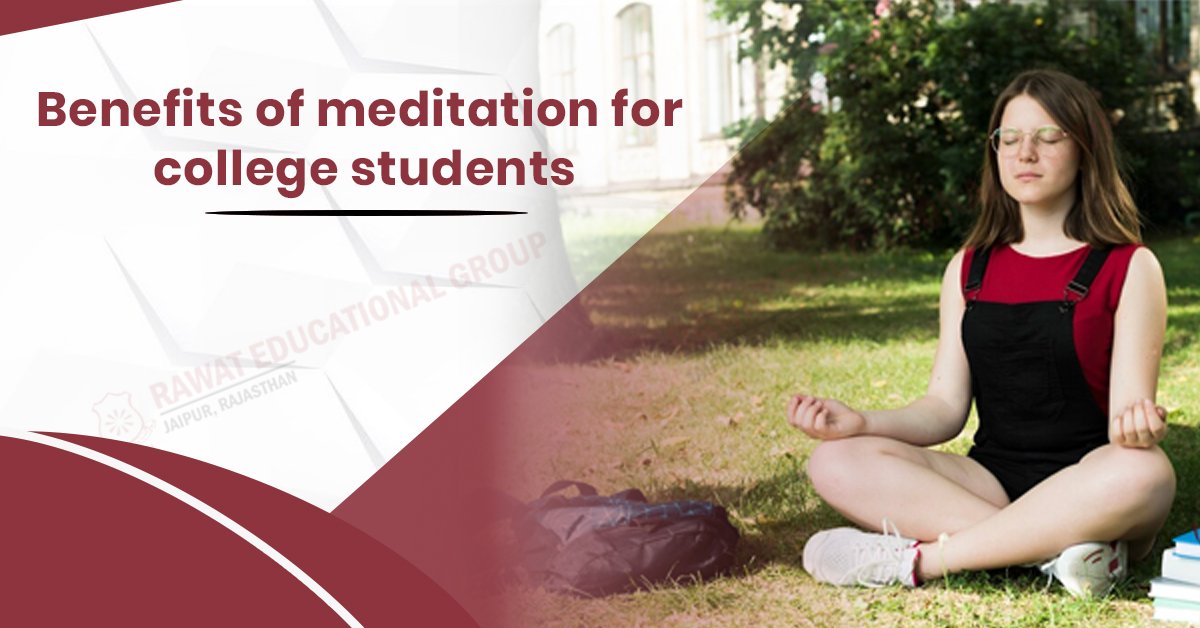Mistakes To Avoid While Preparing for Competitive Exams

Preparing for competitive exams can be a challenging and nerve-wracking endeavor. The pressure to perform well and secure a desirable rank can lead to anxiety and stress.
However, with proper planning and strategies, you can navigate this journey more effectively. To help you along the way, it's essential to be aware of common mistakes that candidates often make while preparing for competitive exams.
By understanding these mistakes and taking proactive measures to avoid them, you can enhance your preparation and increase your chances of success. The mistakes which you need to avoid are as follows:
Also read: You Can Do on Exam Day to Improve Your Grades
1. Lack of Clear Study Plan:
One of the most significant mistakes candidates make is not having a well-defined study plan. Without a structured approach, you may waste time on unnecessary topics or miss out on essential ones. A well-organized study plan helps allocate time to each subject, sets realistic goals, and ensures comprehensive coverage of the syllabus.
2. Procrastination:
Procrastination is a major stumbling block. Postponing study sessions can lead to cramming, inadequate revision, and increased stress. Overcoming procrastination requires self-discipline and time management. Break your study sessions into smaller, manageable chunks, and use techniques like the Pomodoro Technique to maintain focus and productivity.
3. Ignoring the Basics:
Rushing through fundamental concepts to cover advanced topics is a common mistake. Competitive exams often test your understanding of foundational principles. Skipping basics can make it difficult to grasp more complex concepts later on. Ensure you have a solid foundation by thoroughly studying the basics of each subject.
4. Neglecting Mock Tests and Practice:
Practice is essential for exam success. Neglecting mock tests and practice papers can result in poor time management during the actual exam, leading to incomplete sections or rushed answers. Regularly taking mock tests under exam conditions helps you become familiar with the format, improves your speed, and identifies areas that need improvement.
5. Lack of Self-Assessment:
Failing to evaluate your progress and areas of weakness can hinder improvement. Evaluate your performance on practice papers and mock exams regularly. Determine your strengths and weaknesses, then modify your study strategy accordingly. This iterative process helps you focus on areas that need more attention.
6. Not Seeking Clarification:
If you encounter difficulties understanding a concept, seeking clarification is crucial. Many candidates make the mistake of not asking for help or guidance. Utilize resources such as textbooks, online tutorials, or even consulting teachers or mentors to clarify doubts and reinforce understanding.
7. Neglecting Health and Well-being:
Your performance is greatly influenced by both your physical and mental health. Neglecting proper sleep, nutrition, and exercise can lead to fatigue, reduced concentration, and burnout. Incorporate regular physical activity, a balanced diet, and sufficient sleep into your routine to maintain peak cognitive performance.
8. Overloading with Resources:
While resources are essential, relying on too many can be counterproductive. Using multiple books, online platforms, and study materials can lead to confusion and information overload. Select a few reliable resources that align with the exam syllabus and stick to them for a consistent and coherent study experience.
9. Comparing with Others:
Constantly comparing your progress with peers can create unnecessary stress and anxiety. Everybody learns at a unique pace and in a unique way. Focus on your journey and progress, rather than getting discouraged by others' achievements.
10. Not Managing Stress:
Stress is a natural part of exam preparation, but unchecked stress can harm your performance. Incorporate relaxation techniques such as meditation, deep breathing, or hobbies to manage stress. Taking short breaks and engaging in activities you enjoy can refresh your mind and prevent burnout.
11. Ignoring Previous Years' Papers:
Previous years' question papers provide valuable insights into the exam pattern and the types of questions asked. Neglecting them can leave you unprepared for the actual exam format. Practice solving previous years' papers to get a sense of the question distribution and difficulty level.
12. Inadequate Time Allocation for Revision:
Revision is as important as initial learning. Failing to allocate sufficient time for revision can lead to forgetting crucial concepts and information. Allocate a substantial portion of your study plan to revision and make concise notes that can be quickly reviewed before the exam.
13. Unrealistic Study Hours:
Setting overly ambitious study hour goals can lead to exhaustion and reduced quality of study. Quality matters more than quantity. Focus on productive and focused study sessions rather than mindlessly spending long hours at your desk.
14. Disregarding Negative Marking:
Many competitive exams have a negative marking system, where incorrect answers lead to a deduction of marks. Ignoring this aspect and guessing answers can significantly impact your score. Be strategic about answering questions, and if you're unsure, it's often better to leave a question unanswered.
15. Last-Minute Cramming:
Cramming in the final days before the exam rarely leads to effective learning. It can increase stress and hinder your ability to recall information. A consistent and well-spaced study plan throughout the preparation period is far more beneficial.
16. Not Staying Updated:
Some exams include current affairs and recent developments as part of the syllabus. Failing to stay updated with relevant news and events can result in losing crucial marks. Allocate time to read newspapers or online news sources to stay informed.
17. Underestimating Soft Skills:
Competitive exams are not only about academic knowledge; they also assess critical thinking, analytical abilities, and communication skills. Practice essay writing, problem-solving, and effective communication to excel in all aspects of the exam.
18. Overlooking the Syllabus:
Carefully review the exam syllabus and ensure you cover all the topics. Ignoring certain portions of the syllabus might result in missing out on easy marks. Make use of the syllabus as a preparation road map.
19. Lack of Confidence:
Believing in yourself and your preparation is vital. Doubting your abilities can lead to anxiety during the exam, affecting your performance. Cultivate a positive mindset, focus on your strengths, and remind yourself of your accomplishments.
20. Neglecting Time Management:
Time management is crucial during the exam. Spending too much time on one section can leave you with insufficient time for other sections. During your practice sessions, work on improving your pacing to ensure you can attempt all questions within the allocated time.
Conclusion:
In conclusion, preparing for competitive exams requires dedication, discipline, and a strategic approach. By avoiding these common mistakes, you can make your preparation more effective and increase your chances of success.
Remember that setbacks and challenges are a part of the journey, but with consistent effort and a proactive mindset, you can overcome them and achieve your desired results.



